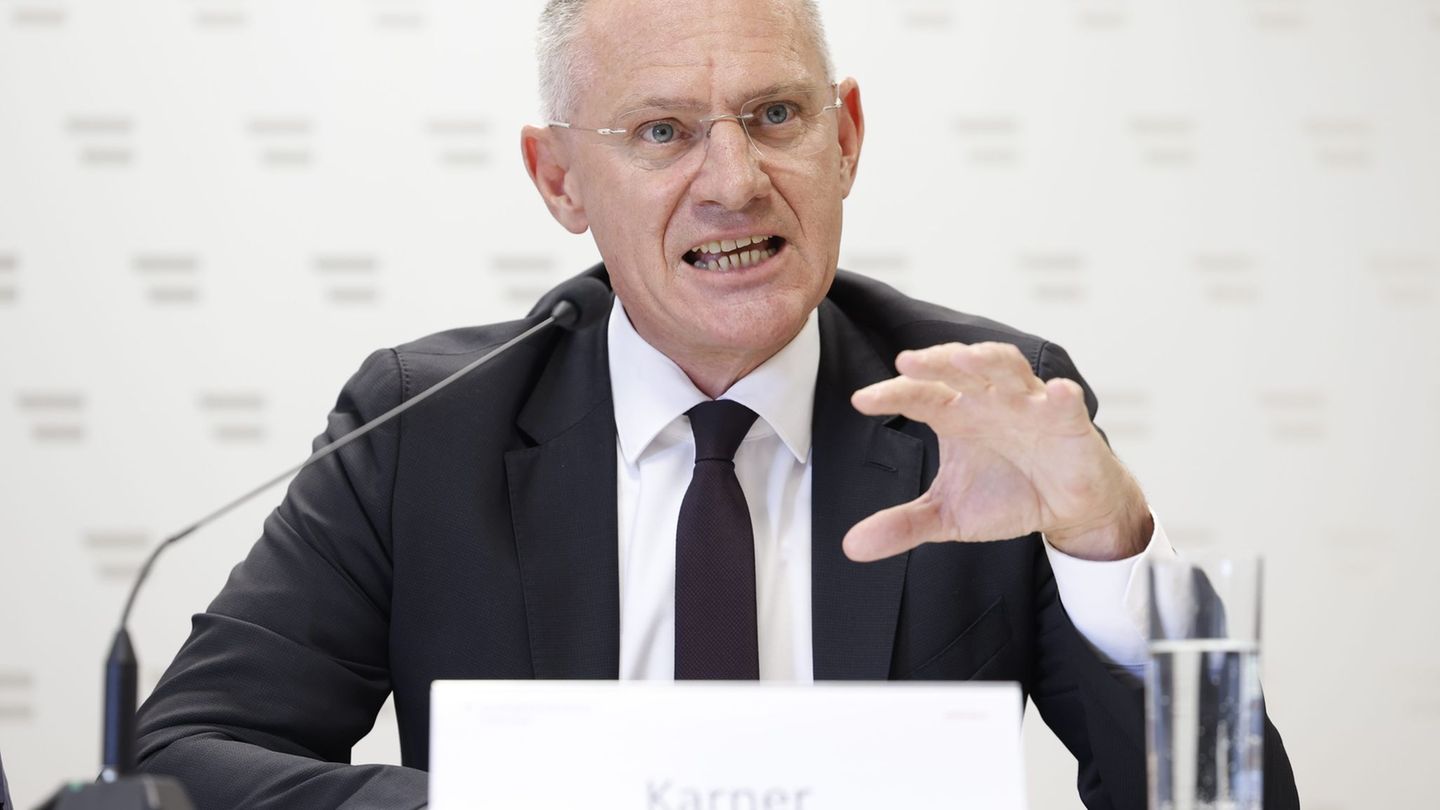The traffic light coalition has presented its proposal for the electoral law reform and wants to bring it through the Bundestag on Friday. Criticism comes from the CSU, among others. Should the party slip below the five percent hurdle, that would have far-reaching consequences for the Union.
CSU regional group leader Alexander Dobrindt considers the new Bundestag electoral law planned by the traffic light coalition to be “fraud on voters”. The project was “absolutely unconstitutional,” said Dobrindt on Wednesday in the ARD “Morgenmagazin”. The planned deletion of the basic mandate clause and the fact that winners of constituencies may not move into parliament clearly ignored the will of the voters. “Obviously, that’s a right to vote that deceives voters, because the will of the electorate is no longer reflected,” said Dobrindt. “Such disrespectful voting rights must end up in the Constitutional Court,” he added.
Dobrindt pointed out that the previous coalition of Union and SPD had already changed the electoral law in several steps. This would take full effect in the next federal election. And the total number of mandates would come to a very similar result as the traffic light plans.
CSU by second votes in the Bundestag
The traffic light coalition wants to pass the reform, which has been strictly rejected by the Union and the Left Party, with its own majority on Friday in the Bundestag. The SPD, Greens and FDP factions gave the green light on Tuesday.
As a result of the reform, the Bundestag, which has grown to 736 members, will again be reduced to 630 seats in the next election. The key point is that there will no longer be any overhang or compensation mandates in the future. The so-called basic mandate clause will also be deleted. It has the effect that a party also enters the Bundestag based on its second vote result if it has missed the five percent hurdle but has won at least three direct mandates.
The CSU sits in the Bundestag because it is mathematically above the five percent hurdle nationwide, although it can only be elected in Bavaria. This is made possible by the , in which parties pursuing similar political goals can join forces. However, they must not compete with one another anywhere. That is why the CDU does not compete in Bavaria and the CSU in no other federal state.
Electoral reform danger for the CSU and the whole Union
On the one hand, the CSU criticizes the fact that after the reform proposal of the traffic light coalition, some constituency winners of the CSU – those with the worst results in a Bavarian comparison – could go away empty-handed in the future. Precisely because the so-called overhang mandates are to be eliminated. Much more serious for the CSU, however, is the impending danger that it could lose all mandates if it stayed below the five percent hurdle.
And the scenario is not entirely out of the world: in 2021, the CSU won 5.2 percent – nationwide. In the general election, . If this trend continues, the CSU will slip below the five percent hurdle in the 2025 federal election – and would therefore not be represented in the Bundestag for the first time since 1949.
That’s it, almost
The Merkel era is coming to an end – a political turning point in pictures
This in turn would be highly problematic for the entire Union. If the CSU ended up with 4.9 percent, the share of votes from Bavaria would be completely gone and possible majorities for the CDU would be in danger. However, it is also true that the Union has so far benefited from the division and the associated overhang mandates.
Should the reform be decided in this way and endure in Karlsruhe, then if the CSU wants to be on the safe side, the only option left is some kind of even closer cooperation with its sister party, the CDU, with joint electoral lists or something similar. Such serious consequences should have for the self-image of the CSU.
FDP politician criticizes CSU
The first parliamentary director of the FDP parliamentary group, Johannes Vogel, defended the traffic light plans. It must not happen that the electoral law reform fails for the fourth legislative period in a row, he said on Deutschlandfunk on Wednesday.
What the coalition now wants to do is something that also existed in Bavaria for a long time in the 1950s. “Namely, that we introduce the so-called second vote coverage and that leads to the described effect: the Bundestag is permanently and safely reduced,” said Vogel. As is the case today, the votes would be distributed according to the strength of the parties. That was proportional representation and has always been the core of German electoral law, said Vogel.
He wished to implement a reform in consensus with the opposition. However, the CSU was only ever willing to make proposals in which it lost disproportionately, said the FDP politician. With the traffic light proposal, all parties lose proportionally. The consequences for the Union are likely to be greater than for the traffic light.
Other sources:, .
Source: Stern
I have been working in the news industry for over 6 years, first as a reporter and now as an editor. I have covered politics extensively, and my work has appeared in major newspapers and online news outlets around the world. In addition to my writing, I also contribute regularly to 24 Hours World.




